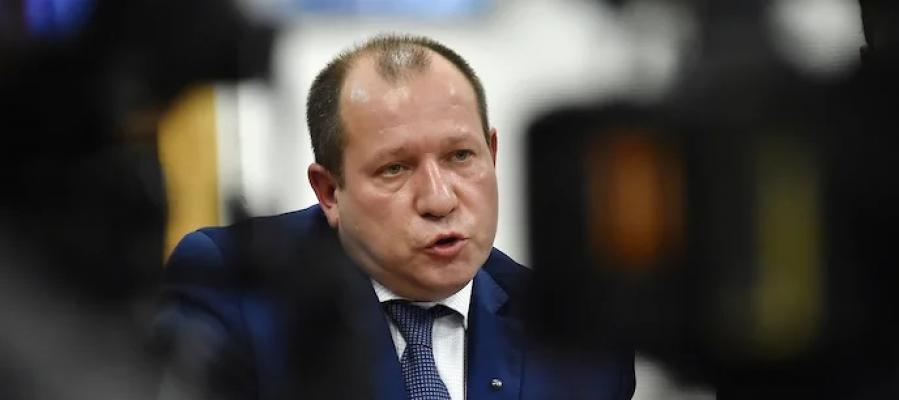
Human rights organization “The Committee Against Torture” submitted a report to General Prosecutor’s Office and the Investigative Committee of Russia dedicated to how investigators violate the law during the examination of complaints about the law-enforcement agencies’ actions. In the first place, this entails consistent refusals to open criminal cases with regard to applications about tortures and batteries. The investigators’ illegal rulings are quashed, but sometimes it takes years to do that, and the guilty, as a result, remain unpunished, as human rights defenders point out. New General Prosecutor, former investigator Igor Krasnov previously acknowledged that he knew about such violations.
Chairman of the Committee Against Torture, member of the Human Rights Council Igor Kalyapin said that the organization gathered a large volume of materials proving consistent or long-lasting violations by investigators in cases concerning violence committed by law-enforcement officers. According to human rights defenders, having obtained the application from a victim, it is very often the case that the investigators do not conduct the check and issue illegal refusal to open a criminal case. They also fail to observe the procedure of petitions’ and applications examination, they do not send notifications about the rulings passed in the case to the victims and their representatives, and very often they just quietly close it. And if the investigator’s ruling is quashed as an illegal one, he is normally not subjected to disciplinary action.
“The main problem which we regularly face, it’s the repeated issuing of illegal procedural rulings, as a rule, after incomplete investigation, — lawyer with the Committee Against Torture Dmitry Kazakov informed “Kommersant”.
— The investigative bodies and the prosecutor’s office superiors do not quash the illegal rulings in a timely manner.
As a result, total periods of applications’ investigation extend to years, and the possibility of evidence gathering is lost — it is fading with time, witnesses forget what they saw”.
Attachments to letters to the General Prosecutor’s Office and the Investigative Committee contain specific examples. For example, for 12 times the investigators issued refusals to initiate criminal proceedings with regard to the complaint by Pavel Baronin from Moscow who is claiming to have been beaten up by the officers of the Anti-Extremism Center with the Ministry of the Interior of Russia. All these rulings were quashed as illegal and the investigation continues for over four years. In Orenburg, 27 refusals to open criminal case were issued with regard to Oleg Elchaninov’s application, which were subsequently quashed as illegal. Pre-investigative check is ongoing for over 13 years.
Human rights defenders analyzed the departmental normative acts and made a conclusion that even minor adjustment of those will improve the situation.
In particular, the Committee Against Torture suggests that the case materials are handed over to the superior investigative department after three procedural rulings have been declared illegal. It is proposed to make the provision about the “timeliness” of the checks of the refusals to initiate criminal proceedings more specific — for example, to introduce a requirement to conduct the checks within the three days’ period. In order to facilitate the dialogue with victims the authority should better move from hard copies of letters to electronic ones or even introduce the alternative means, for example, SMS-notifications and messages via “State Services” web portal. “We live in the XXI century, it is time we switch to modern ways of information transfer”, — Mr Kazakov says. “If our proposals are executed it will have a positive impact on resolving of the similar problems for other categories of the cases, too”, — he assured.
Head of the Moscow branch of the Committee Against Torture Anastasia Garina, who used to work as investigator herself, can easily explain why her former colleagues commit such violations. “Having received a complaint about a police battery, the investigators prefer to refuse to open a criminal case. The thing is, when the suspects are executive officials, usually the resistive action starts, someone may interfere in the investigation, there will be a clash of interests. The investigators do not know themselves that the case will reach the court, — Ms Garina comments. — At the same time, continuous issuing refusals to initiate criminal proceedings and delaying the investigation practically do not create any problems to the investigator. If worst comes to worst, the prosecutor will ask what is going on there, and that’s it”. In her opinion, the changes proposed by the Committee, “might force the investigators to start moving”.
The General Prosecutor’s Office is supervising the work of the investigation; the Committee Against Torture hopes that the new head of the agency, former deputy head of the Investigative Committee Igor Krasnov will take these proposals into account. Previously, in his interview to “Kommersant” Mr Krasnov emphasized that the investigator is acting on behalf of the state and according to the rules stipulated in the law (see “Kommersant” dated 5 February 2019). Last week, while answering the question of Russian human rights ombudsman Tatyana Moskalkova, Mr Krasnov acknowledged the existence of the problem with unmotivated refusals to initiate criminal proceedings and added that “the prosecutors should supervise the investigators’ actions”.
Author: Anastasia Kurilova
Source: “Kommersant” newspaper